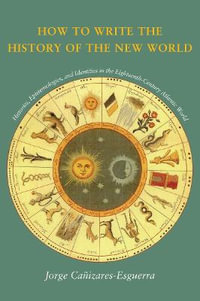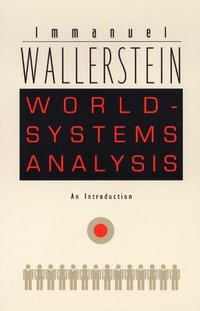
At a Glance
204 Pages
18 x 11.5 x 1.5
Paperback
$14.99
or 4 interest-free payments of $3.75 with
Aims to ship in 5 to 10 business days
About The Author
Edward Hallett Carr was born in 1892 and educated at the Merchant Taylors' School, London, and Trinity College, Cambridge, where he was Craven scholar and took a double first in classics. He joined the Foreign Office in 1916 and after numerous jobs in and connected with the F.O. at home and abroad he resigned in 1936 and became Wilson Professor of International Politics at the University College of Wales, Aberystwyth. He was Assistant Editor of The Times from 1941 to 1946, Tutor in Politics at BaIliol College, Oxford, from 1953 to 1955, and became a Fellow of Trinity College, Cambridge, in 1955 and an Honorary Fellow of BaIliol College, Oxford, in 1966. He received the CBE in 1920.
As a historian he is best known for his monumental History of Soviet Russia, which the Guardian referred to as 'among the most important works by a British historian this century' and The Times called 'an outstanding historical achievement'. He began his History in 1945 and worked at it for nearly thirty years. It occupies fourteen volumes plus a summary, The Russian Revolution: Lenin to Stalin. Several parts of the History have been published by Penguin: The Bolshevik Revolution, 1917-1923 (in three volumes); The Interregnum, 1921-1924; Socialism in One Country, 1924-1926 (in three volumes); and Foundations of a Planned Economy 1926-1929 (in two volumes, volume one co-authored by R. W. Davies). His other publications include The Romantic Exiles (1933), The Twenty Years' Crisis, 1919-1939 (1939), Conditions of Peace (1942), The Soviet Impact on the Western World (1946), The New Society (1951) and From Napoleon to Stalin and other essays (1980). E. H. Carr died in 1982 and in his obituary The Times wrote, 'His writings were for the most part as incisive as his manner. With the unimpassioned skill of a surgeon, he laid bare the anatomy of the recent past. . . beyond doubt he left a strong mark on successive generations of historians and social thinkers.'
These conditions provided, at any rate, a superficial justification for the expression of optimism and belief in the future with which I ended my lectures in 1 % 1. The succeeding twenty years frustrated these hopes and this complacency. The cold war has been resumed with redoubled intensity, bringing with it the threat of nuclear extinction. The delayed economic crisis has set in with a vengeance, ravaging the industrial countries and spreading the cancer of unemployment throughout western society. Scarcely a country is now free from the antagonism of violence and terrorism. The revolt of the oil-producing states of the Middle East has brought a significant shift in power to the disadvantage of the western industrial nations. The 'third world' has been transformed from apassive into a positive and disturbing factor in world affairs. In these conditions any expression of optimism has come to seem absurd. The prophets of woe have everything on their side. The picture of impending doom, sedulously drawn by sensational writers, and journalists and transmitted through the media, has penetrated the vocabulary of everyday speech. Not for centuries has the once popular prediction of the end of the world seemed so apposite.
Yet at this point common sense prompts two important reservations. In the first place, the diagnosis of hopelessness for the future, though it purports to be based on irrefutable facts, is an abstract theoretical construct. The vast majority of people simply do not believe in it; and this disbelief is made evident by their behaviour. People make love, conceive, bear and rear children with great devotion. Immense attention, private and public, is given to health and education in order to promote the well-being of the next generation. New sources of energy are constantly explored. New inventions increase the efficiency of production. Multitudes of 'small savers' invest in national savings bonds, in building societies and in unit trusts. Widespread enthusiasm is shown for the preservation of the national heritage, architectural and artistic, for the benefit of future generations. It is tempting to conclude that belief in early annihilation is confined to a group of disgruntled intellectuals who are responsible for the lion's share of current publicity.
My second reservation relates to the geographical sources of these predictions of universal disaster, which emanate predominantly – I should be tempted to say, exclusively – from western Europe and its overseas offshoots. This is not surprising. For five centuries these countries had been the undisputed masters of the world. They could claim with some plausibility to represent the light of civilization in the midst of an outer world of barbarian darkness. An age which increasingly challenges and rejects this claim must surely build disaster. It is equally unsurprising that the epicentre of the disturbance, the seat of the most profound intellectual pessimism, is to be found in Britain; for nowhere else is the contrast between nineteenth-century splendour and twentieth-century drabness, between nineteenth-century supremacy and twentieth-century inferiority, so marked and so painful. The mood has spread over western Europe and – perhaps to a lesser degree – north America. All these countries participated actively in the great expansionist era of the nineteenth century. But I have no reason to suspect that this mood prevails elsewhere in the world. The erection of insurmountable barriers to communication on one side, and the incessant flow of cold war propaganda on the other, render difficult any sensible assessment of the situation in the US S R. But one can scarcely believe that, in a country where a vast majority of the population must be aware that, whatever their current complaints, things are far better than they were twenty-five or fifty or a hundred years ago, widespread despair about the future has taken hold. In Asia both Japan and China in their different ways are in a forward-looking position. In the Middle East and Africa, even in areas which are at present in a state of turmoil, emergent nations are struggling towards a future in which, however blindly, they believe.
My conclusion is that the current wave of scepticism and despair, which looks ahead to nothing but destruction and decay, and dismisses as absurd any belief in progress or any prospect of a further advance by the human race, is a form of elitism – the product of elite social groups whose security and whose privileges have been most conspicuously eroded by the crisis, and of elite countries whose once undisputed domination over the rest of the world has been shattered. Of this movement the main standard-bearers are the intellectuals, the purveyors of the ideas of the ruling social group which they serve ('The ideas of a society are the ideas of its ruling class'). It is irrelevant that some of the intellectuals in question may have belonged by origin to other social groups; for, in becoming intellectuals, they are automatically assimilated into the intellectual elite. Intellectuals by definition form an elite group.
What is, however, more important in the present context is that all groups in a society, however cohesive (and the historian is often justified in treating them as such), throw up a certain number of freaks or dissidents. This is particularly liable to happen among intellectuals. I do not refer to the routine arguments between intellectuals conducted on the basis of common acceptance of main presuppositions of the society, but of challenges to these presuppositions. In western democratic societies such challenges, so long as they are confined to a handful of dissidents, are tolerated, and those who present. them can find readers and an audience. The cynic might say that they are tolerated because they are neither numerous nor influential enough to be dangerous. For more than forty years I have carried the label of an 'intellectual'; and in recent years I have increasingly come to see myself, and to be seen, as an intellectual dissident. An explanation is ready to hand. I must be one of the very few intellectuals still writing who grew up, not in the high noon, but in the afterglow of the great Victorian age of faith and optimism, and it is difficult for me even today to think in terms of a world in permanent and irretrievable decline. In the following pages I shall try to distance myself from prevailing trends among western intellectuals, and especially those of this country today, to show how and why I think they have gone astray and to strike out a claim, if not for an optimistic, at any rate for a saner and more balanced outlook on the future.
E. H. CARR
ISBN: 9780141037738
ISBN-10: 0141037733
Series: Popular Penguins
Published: 1st September 2008
Format: Paperback
Language: English
Number of Pages: 204
Audience: General Adult
Publisher: Penguin UK
Country of Publication: GB
Edition Number: 1
Dimensions (cm): 18 x 11.5 x 1.5
Weight (kg): 0.14
Shipping
| Standard Shipping | Express Shipping | |
|---|---|---|
| Metro postcodes: | $9.99 | $14.95 |
| Regional postcodes: | $9.99 | $14.95 |
| Rural postcodes: | $9.99 | $14.95 |
How to return your order
At Booktopia, we offer hassle-free returns in accordance with our returns policy. If you wish to return an item, please get in touch with Booktopia Customer Care.
Additional postage charges may be applicable.
Defective items
If there is a problem with any of the items received for your order then the Booktopia Customer Care team is ready to assist you.
For more info please visit our Help Centre.
You Can Find This Book In

History of the Arab Invasions: The Conquest of the Lands
A New Translation of al-Baladhuri's Futuh al-Buldan
Paperback
RRP $80.00
$64.25
OFF

How to Write the History of the New World
Histories, Epistemologies, and Identities in the Eighteenth-Century Atlantic World
Paperback
RRP $57.25
$14.35
OFF





















